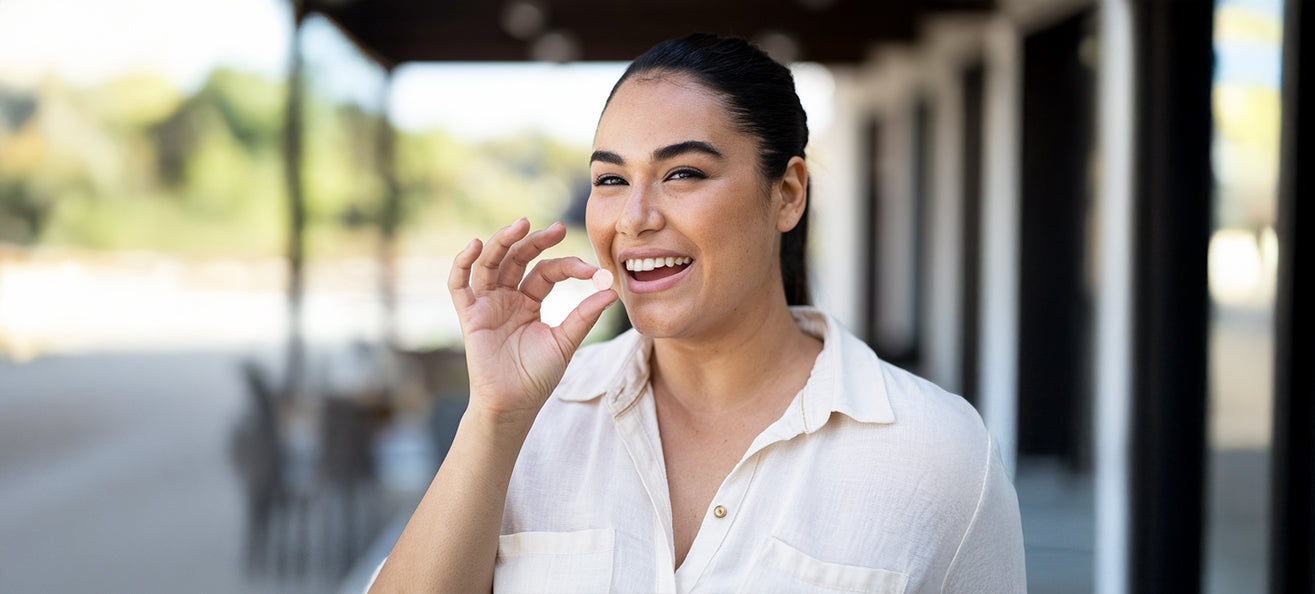Are you struggling to find the necessary supplies for your post-bariatric surgery needs? If so, look no further! Shopping on Amazon for bariatric items can be a great way to find the necessary supplies without leaving home. To help steer your search, here is a list of the top 10 bariatric items that should be on everyone's Amazon shopping list.
1) Protein powder.
Protein powders are a creative way to help you meet your protein goals after surgery (they're also great for general weight loss). Protein helps you to heal, aids in keeping a good nutrition status, helps to build and maintain muscle mass and burn fat, and keeps you feeling satisfied. Be sure to try a few different types, as there are many options including whey and plant-based. Experiment with protein powders by mixing them into smoothies, adding them to treats when baking, and even adding flavorless powders to foods like yogurt, mashed potatoes, oatmeal... Whatever you like!
2) Blender.
A blender is a must-have for anyone who wants to make smoothies, soups, or sauces. There are many different brands and models to choose from so be sure to find one that fits your needs and budget. I prefer a blender that is single-serving size so you can keep portion sizes appropriate, and you’re less likely to waste ingredients. You’ll definitely find a blender to be useful for your immediate post-op diet stages but will likely use it indefinitely.
3) Measuring cups and spoons.
Measuring cups and spoons are essential for anyone who wants to cook or bake but even more so for portion control after bariatric surgery. You will gradually increase your portion sizes throughout your post-op diet stages, and it will be important to follow portion size recommendations. You may also find yourself trying new recipes or cooking more than what you have in the past so having these tools on hand is a must.
4) Food scale.
A food scale is another essential tool for helping you track your protein intake and also control portion sizes. For example, it’s an excellent tool for teaching you what a 3oz portion of chicken looks like to ensure you’re getting the amount of protein you planned to eat. “Eyeballing” portions just won’t cut it. Food scales are also great for portion control for other foods when meal prepping. It helps keep things streamlined so you’re not guessing what you’re consuming. Food scales are relatively inexpensive. Most you can find under $15!
5) Kitchen knives.
A set of good-quality kitchen knives is a must-have, especially when it’s time to meal prep. Honestly, there’s no need to purchase an entire set (unless you really want to), but I find that getting a few different types of knives for various jobs is best. For example, a good 8-inch chef’s knife is great for cutting, slicing, and chopping larger to small items, a serrated knife to slice through the thin skin of tomatoes and other fruits and vegetables, and a paring knife for smaller jobs. Don’t forget cutting boards!
6) Pots and pans.
I should never assume everyone owns pots and pans. In fact, many of my clients don’t cook. Unfortunately, you won’t be able to live on take-out and convenience meals forever after bariatric surgery so you may be doing some light cooking at the very least. Pots and pans will be particularly useful for batch cooking for meal prep and of course, your everyday cooking. It’s best to purchase a few different sizes of pots (small to large) and also a couple of non-stick frying pans for sauteeing veggies, meats, fish, and scrambling eggs — one smaller and one larger.
7) Assorted meal prep containers.
Meal prep containers are probably the most used item on the shopping list as they provide a great way to practice portion control. I suggest stocking up on 1oz, 4oz, and 8oz sized containers as these are the most frequently used. Following surgery (and after you have passed your post-op diet stages), you will need to limit the portion size of a meal to no more than 1 cup or 8oz. This is when you’ll use those larger sized ones. However, all of the sizes are very useful, great for meal prep, and perfect for grab-n-go.
8) High quality water bottle (i.e. Hydro Flask).
You will be taking this EVERYWHERE... Or at least you should. After surgery, you should get used to the idea of taking your water bottle everywhere you go. The fact you will need to sip fluids throughout the entire day (instead of gulping or chugging), presents a challenge in reaching your daily fluid goal. So having a water bottle within reach at all times is a smart habit to start before surgery and to continue after. If you feel you consume water better with a straw, I would suggest finding a water bottle with a built-in straw or one you can easily add a straw to. You will likely need to avoid using a straw for the first few weeks or even months to prevent taking in air, but most people are fine after the first month post-op. Whatever encourages you to drink more water, use it!
9) Air fryer.
An air fryer is a wonderful addition to any kitchen if you don’t already have one. It’s also a healthy alternative to frying foods. If there’s one appliance I’d choose over anything else, it’d be this one! It’s quick cooking, easy to use, and foods taste just as good or better than the fried version. It’s also great for reheating foods. Be sure to check out some air fryer cookbooks while you’re browsing!
10) Exercise tools.
Don’t overthink this one. A simple set of resistance bands and a yoga mat will do the trick for your at-home workouts. Bands can serve as a form of strength training and can also be used for stretching. Ensure you purchase a set so you can get different levels of resistance, ranging from beginner to advanced. You can find instructional videos online on YouTube, Amazon Prime, and/or social media platforms.
So, there you go folks! Get to shopping! Of course, the items on this list are not all you’re going to need, but it’s a start. There’s no need to spend an insane amount of money preparing for surgery as you’ll find some things are unnecessary or will be unused, but you never know until you get there. Talk to others and ask what they found useful and what they didn’t. That can also help narrow down your list as to what you’ll need.
Article By: Whittany Gibson, RDN
Whittany is a Registered Dietitian Nutritionist who specializes in bariatric nutrition counseling, and owner of Level Up Bariatrics, LLC, a bariatric lifestyle coaching program that provides pre and post-op support for weight loss surgery patients. Learn more on Instagram (@level_up_bariatrics).
Barimelts provides general recommendations, not to be construed as medical advice. Please consult your doctor.





